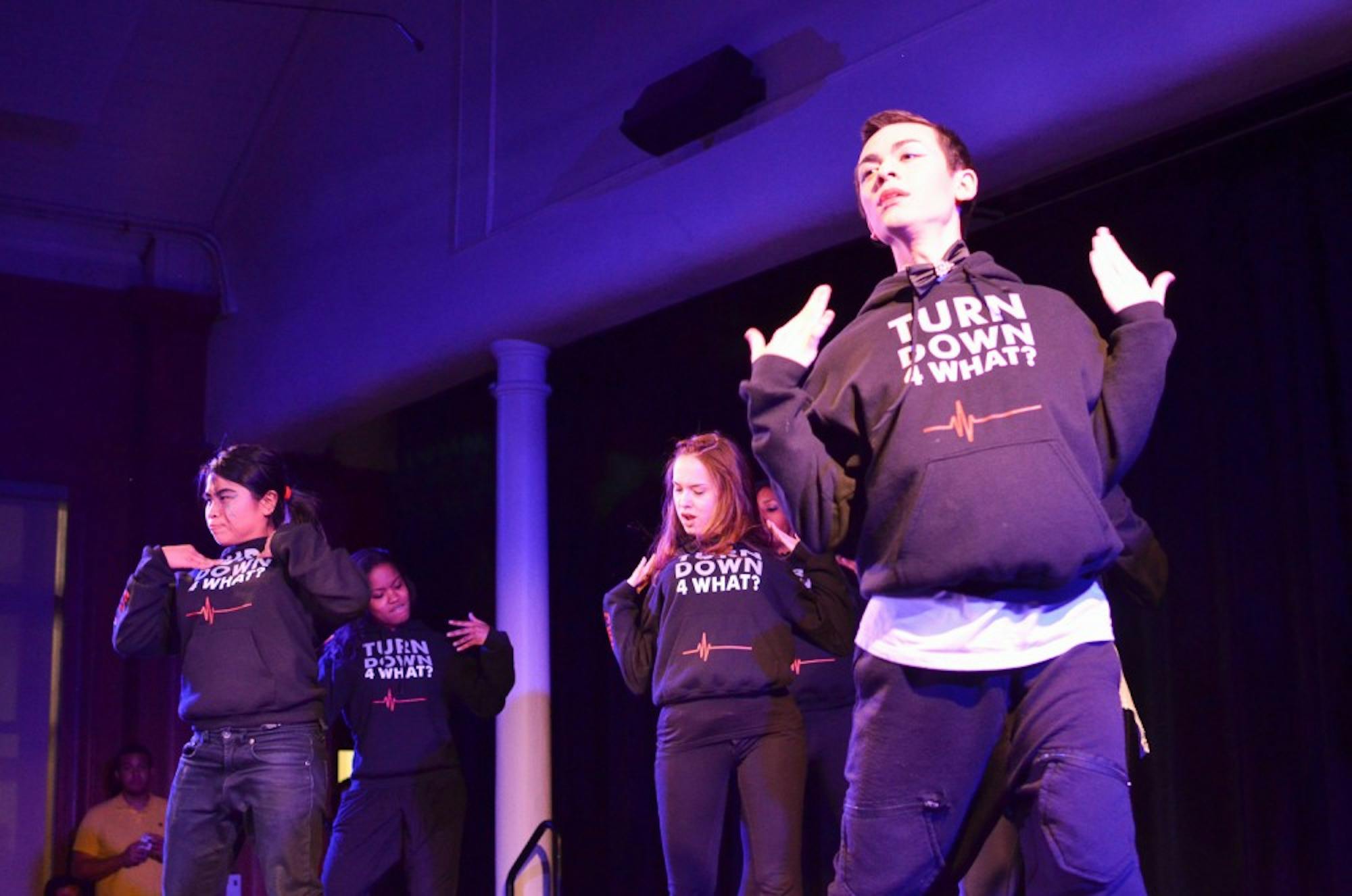Rainbow fishnet stockings, white button-down shirts, pink skin-tight dresses and black bras were among the outfits modeled at Tuesday’s Transform fashion show, which took place last night as part of Pride Week. The gender-bending fashion event drew a large crowd to Collis Common Ground.
The show was divided into three acts, with Ujima and Sheba performing during the two intermissions.
Randi Young ’15, president of the Dartmouth Fashion Council and a co-organizer of the event, said that participants, regardless of the gender or sexuality with which they identify, sported outfits that they would not wear on a daily basis. The event was about self-expression and challenging binaries, Young said.
“There are all these rules about what it means to be men and women, but the show is all about challenging that,” Young said. “This isn’t really cross-dressing because [cross-dressing] implies there’s a certain way that a person should dress.”
As the show opened, the participants were introduced by the emcee with words they identified themselves with, such as “activist,” “non-conformist,” “wallflower,” “artist” and “frat brother.”
Sandi Caalim ’13, an event co-organizer, said in an emailed statement that the show pushes against society’s definition of gender norms and that the show seeks to use art to communicate that there are no rules for self-identification and expression.
Victoria Townsend ’14 said that she chose to participate in Transform at the request of Caalim, her friend. She anticipated that the event would push her out of her comfort zone, she said. Townsend, who said she began to question norms of gender identity through her involvement in the Diversity Peer Program, said she’s grown to appreciate “pushing the boundaries of gender norms” during her time at the College.
Though the participants did not meet one another until 5 p.m. last night, Townsend said, they quickly became close to one another, swapping clothing and peering out from behind the curtain to watch each other perform.
“Backstage, everyone was pumping each other up,” Townsend said. “We were all just so happy and everyone was really supportive of each other.”
Jeremy Dickerson ’17, who took to the runway as Deadly Bloom, said he heard of Transform through Caalim while dancing with her in Ujima and volunteered to participate.
“I wanted to be a character, to be something new,” Dickerson said. “Doesn’t hurt to try on a dress.”
The show opened up with Dickerson’s short solo act, followed by each participant walking the runway to the music’s beat. Participants put together their performances, selecting clothing, props and music and deciding how to carry themselves.
During the show’s first act, Caalim walked onstage wearing jeans and a dark, boxy sweater. At the end of the runway, Caalim peeled off the sweater, revealing a shirt underneath. Then Caalim removed both the shirt and jeans, uncovering a skin-tight dress.
Each of the outfits was either borrowed, assembled from the participants’ personal closets, or lent to participants by Revolution, a vintage clothing store located in White River Junction.
Nancy Huyl, a Revolution representative, said that she has enjoyed helping out with Transform. The event, she said, allowed people to “explore whatever character they want to be.”
Beyond the clothes and the make-up, participants said that Transform communicated something beyond the tangible ways of expression.
Rin Kominkiewicz ’14 said that Transform was a “refreshing” outlet for people to express themselves.
“Everyone’s coming out expressing themselves, being who they wanna be. And there’s clearly no judgment in this room,” Kominkiewicz said.
Ryan Hueston ‘14, a participant, said that the event created a comfortable space, without labels.
“I don’t come from a place where labels are as necessary as Dartmouth,” Hueston said. “I think here, through this event, you don’t even need to discuss things like that.”




